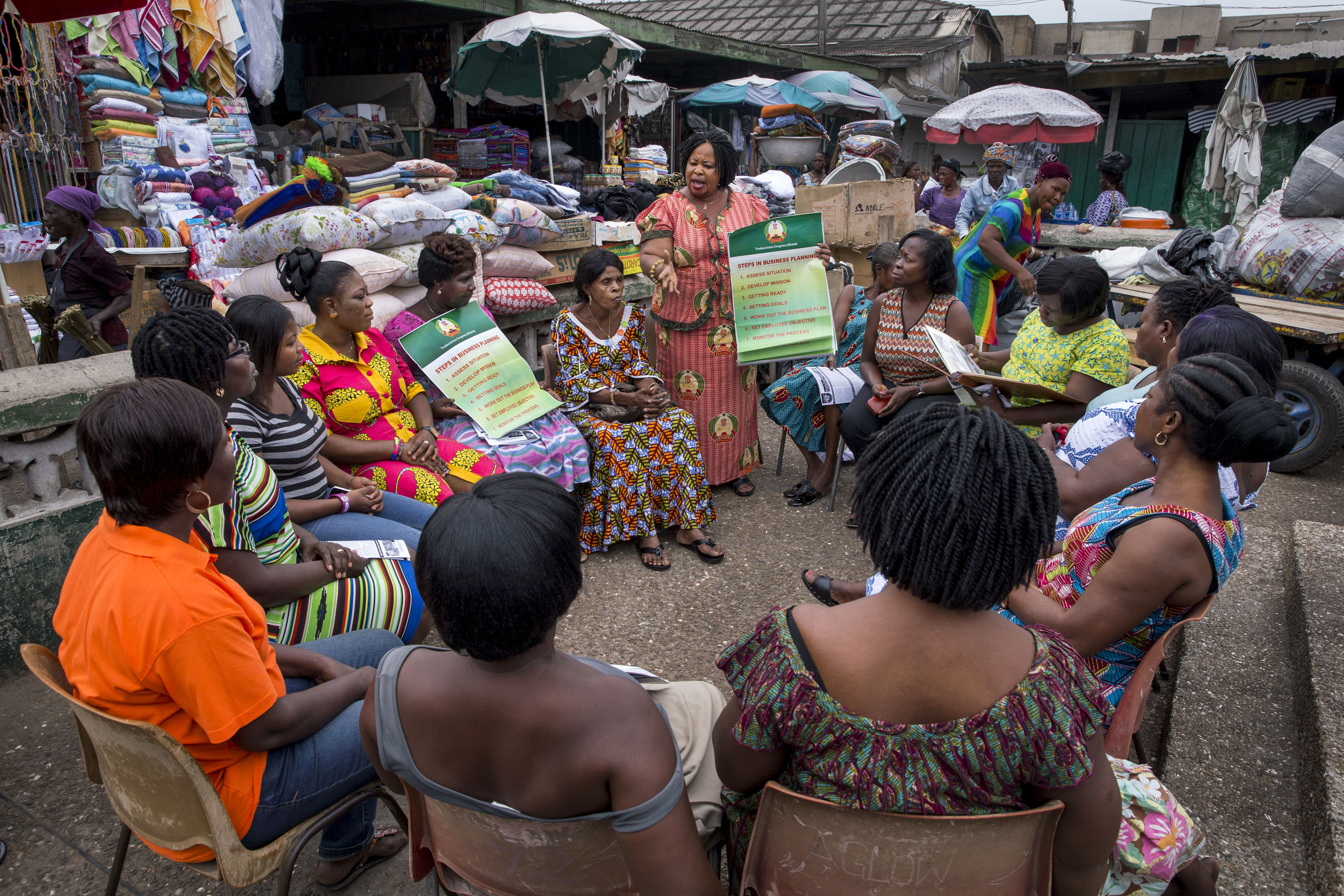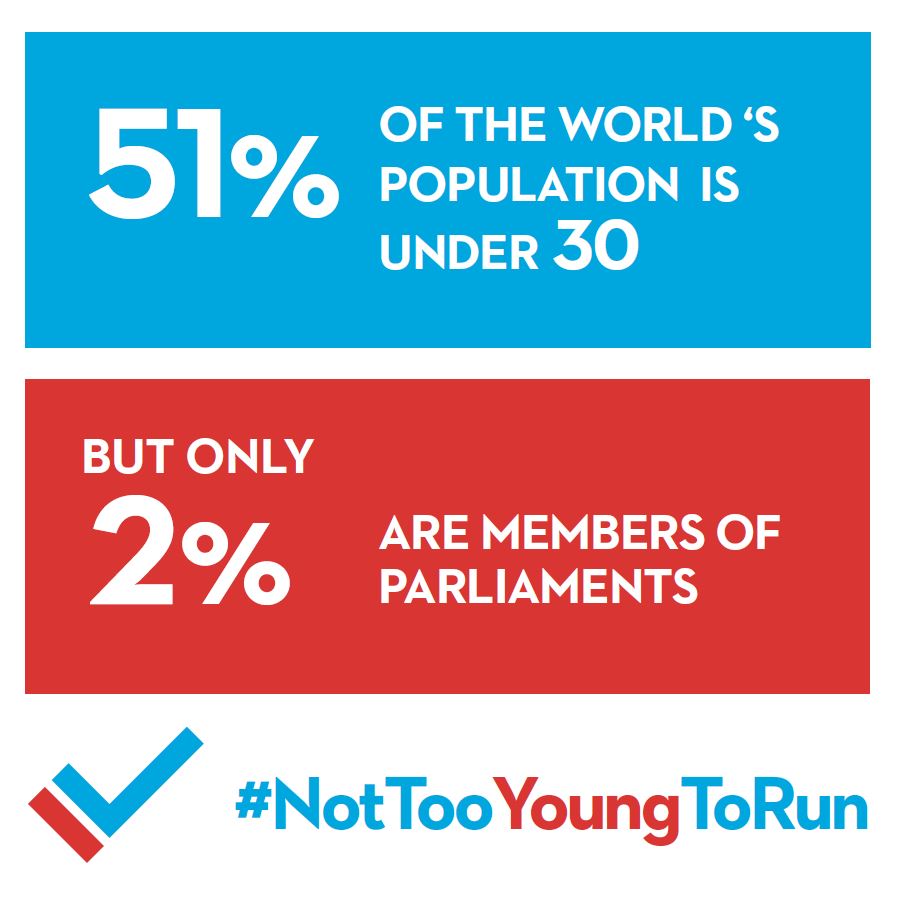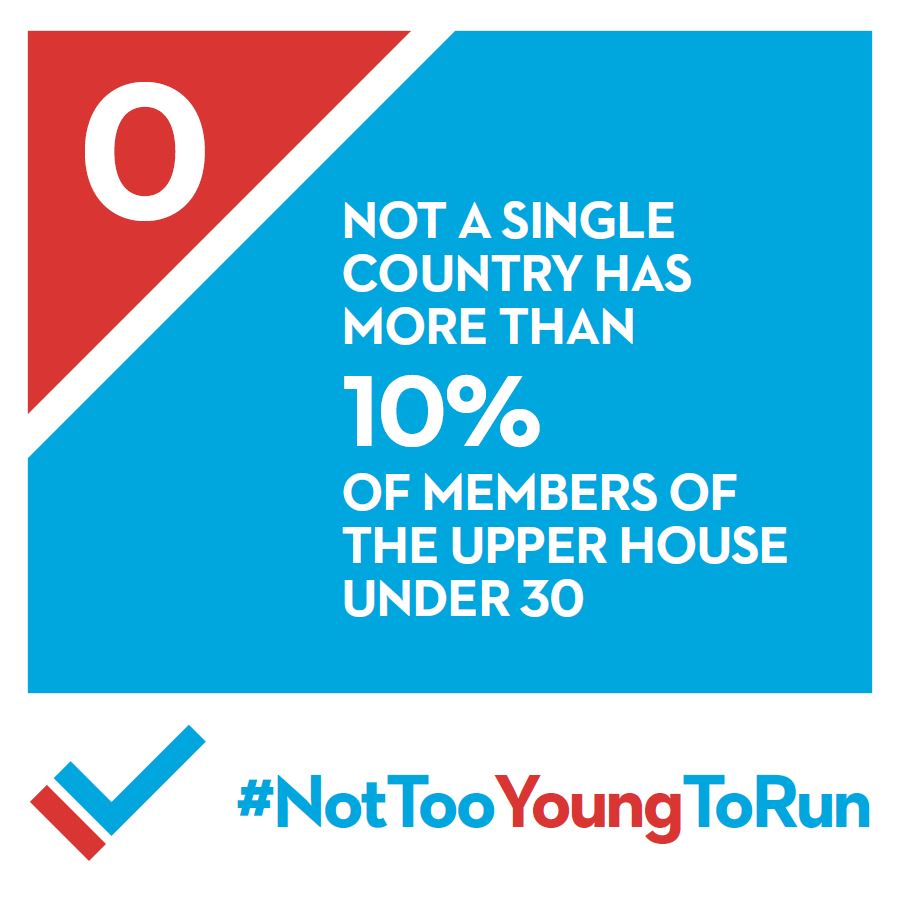 Produced by Women Deliver
March 22, 2017
Produced by Women Deliver
March 22, 2017
How One Young Leader is Getting More Young People to Run for Political Office
 Women aren't the only demographic group who lack full representation and participation in politics; young people do, as well. In honor of this month's focus on Women's Political Participation, we spoke with Isatou Bittaye, a Women Deliver Young Leader from The Gambia. Isatou is involved with Not Too Young to Run, an open campaign that supports young people's right to run for office. She shares her thoughts on the barriers to full representation, and shares how her work with Not Too Young to Run in The Gambia is mobilizing young people to participate more fully in politics.
Women aren't the only demographic group who lack full representation and participation in politics; young people do, as well. In honor of this month's focus on Women's Political Participation, we spoke with Isatou Bittaye, a Women Deliver Young Leader from The Gambia. Isatou is involved with Not Too Young to Run, an open campaign that supports young people's right to run for office. She shares her thoughts on the barriers to full representation, and shares how her work with Not Too Young to Run in The Gambia is mobilizing young people to participate more fully in politics.
Women Deliver: What are some of the limitations that keep young people, especially young women, from fully participating in the political process?
Isatou Bittaye: Politics is often associated with age and experience, and young people are often seen as inexperienced, unimportant and cannot offer anything meaningful to societal political progress.
The political culture and environment in most countries including The Gambia are patriarchal in nature. Men are believed to be the ‘natural’ household heads and this belief naturally extends to the political realm as often women are constrained to the ‘private sphere’ and politics is public space. Because of the patriarchal nature of politics, it has long been “men’s club," thus limiting women especially young women to fully participate in political processes.
Moreover, the majority in party executive committees and selection committees are dominated by men. It is in there that important decisions are made and selection of candidates to contest for political office. Thus, if women and young people are not equally represented in those committees, the selection of women and youth candidates to represent the party in elective offices will be minimal.
"Women’s participation in politics enhances a country’s development because women prioritize issues of social and development matters and influence national budgets, policy priorities and overall government directions. When women progress, societies progress and everybody wins."

Women Deliver: Why do you think that it's important for women and young people to be politically engaged and represented?
Isatou: In The Gambia, women constitute 51% of the population and are the majority among registered voters, and young people are approximately 60% of the population. Often, these groups are mostly visible at the lower end of the political processes, serving as mobilizers and campaigners for male candidates. They are much less visible at the upper end, contesting as candidates and being part of the decision-making processes from the community to the national level.
Women and young people know their issues and interests best; when adequately represented in political offices, they can best articulate such needs and interests. When both groups are adequately represented, they can scrutinize policies and see how such policies adequately address the needs of women and young people. Additionally, women will enact progressive gender laws that tackle the issues that women continue to face. Moreover, women parliamentarians tend to scrutinize more the national budget to ensure it is gender and youth sensitive and adequately addresses the needs of women and young people.
When women are represented in political offices, women’s health including sexual and reproductive health, education, and economic empowerment will be advanced, and social and cultural issues that hinder their progress addressed. Women’s participation in politics enhances a country’s development because women prioritize issues of social and development matters and influence national budgets, policy priorities and overall government directions. When women progress, societies progress and everybody wins.
Women Deliver: Describe your work with Not Too Young to Run and what this initiative is trying to do.
Isatou: The Not Too Young to Run campaign is a global campaign that promotes and supports young people’s participation in politics. The campaign, launched in The Gambia in February, 2017 by youth activists (including myself), seeks to advance the political participation and representation of young people.
In The Gambia, the campaign has conducted consultation meetings in five regions of the country to mobilize young people to run in the April National Assembly election. The movement also engaged political party leaders in the country and lobbied for their parties to consider youth candidates in their nomination processes. So far, the movement has supported 20 youth candidates with visibility campaign materials and provided training on critical issues for effective campaigning, such as campaign planning and strategy, public speaking, communication and campaign messaging, democracy and good governance, among others. Most of youth candidates are independent without any party support, so without the movement, it’s likely that some of them would not have run at all.
Women Deliver: What advice can you give to other young people, particularly young women, who are interested in getting involved in politics?
Isatou: There will be no progressive policy for young people without the involvement of young people. For young people who are interested in getting into politics, they should join political parties. Demand that those parties have inclusive policies, and that young people occupy important party committees. Through their involvement with political parties, young people can learn more, lobby for parties to include youth policies, and introduce youth and women quotas to increase their participation in politics.
In order to advance their political career, young women need to build their individual capacities and engage in peer mentoring and networking. Young women can engage older woman politicians to mentor them and share best practices. Those with political ambitions can form network and groups that support young people and promote their political participation.




